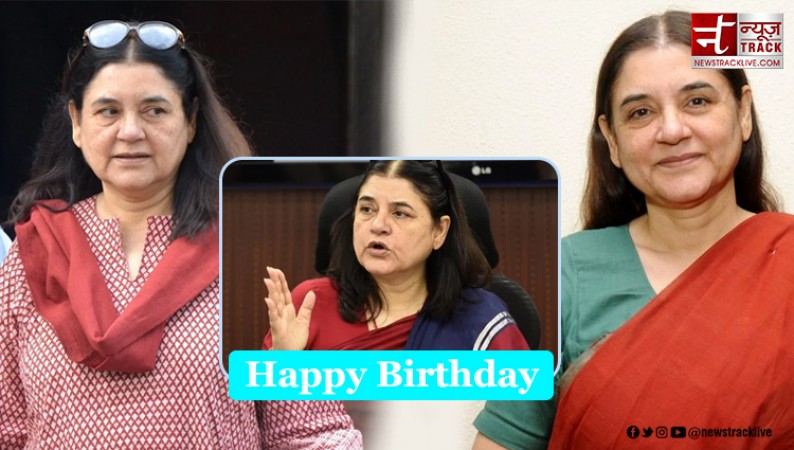
On August 26th, India remembers the birthday of Maneka Gandhi, a multifaceted personality renowned as a politician, animal rights activist, and environmentalist. As a member of the Lok Sabha from the Sultanpur constituency in Uttar Pradesh, her journey through the corridors of power has been both intriguing and impactful. Beyond her political roles, Maneka Gandhi has left an indelible mark on various spheres of society. As she turns 67, know some lesser-known facts about this remarkable activist-politician.
Early Life and Education: Maneka Gandhi was born as Maneka Anand in the heart of New Delhi to Amardeep Kaur Anand and Lt. Col. Tarlochan Singh Anand. Raised in a household that followed Sikhism, her formative years were marked by values of compassion and social responsibility that would later shape her activism.
Her educational journey took her to Lawrence School, Sanawar for her schooling and later to Lady Shri Ram College for Women in Delhi. Her quest for knowledge extended to Jawaharlal Nehru University, where she studied German. It was during her college days that she made her mark by winning several beauty pageants, showcasing her charisma and confidence.
From Modelling to Activism: At the young age of 17, Maneka Gandhi ventured into the world of modelling, a decision that would pave the way for her multifaceted career. Her initial stint in the industry was with Bombay Dyeing, marking the beginning of her public presence.
However, her life took a pivotal turn when she met Sanjay Gandhi on December 14, 1973, at a cocktail party hosted by her uncle, Major-General Kapur. The two souls connected, setting the stage for a relationship that would later intertwine with India's political narrative.
Political Awakening and Personal Turmoil: Tragedy struck Maneka Gandhi's life when Sanjay Gandhi, her husband, passed away in a plane crash in 1980. This event marked a turning point, propelling her into the world of active politics. Despite her initial foray into the spotlight being through her association with the Gandhi family, Maneka quickly carved her own path, earning her place in the political arena.
Her role as the founding editor of the Surya magazine further solidified her influence. The magazine played a pivotal role in reshaping the Congress Party's image through regular interviews with Sanjay and Indira Gandhi. However, as the public gaze intensified, so did the challenges in her personal life.
Challenges and Triumphs: Maneka Gandhi's journey was characterized by its share of adversities. The relationship between her and Indira Gandhi, once mother-in-law and daughter-in-law, turned sour after Sanjay's demise. The favoring of Sonia Gandhi over Maneka even during Sanjay's lifetime strained their ties further. The political landscape became entangled with personal dynamics.
In 1983, the friction between Maneka and Indira came to the fore when she was asked to leave the Prime Minister's residence. However, adversity often breeds resilience, and Maneka harnessed her energy to launch the Sanjay Vichar Manch alongside politician Akbar Ahmed. The party's success, winning four seats in Andhra Pradesh, signaled her ability to rally support.
A Transformational Phase: The transformational phase in Maneka's career occurred in 1999 when she joined the Bharatiya Janata Party (BJP). As the saffron party assumed power, Maneka Gandhi's skills were recognized, leading to her appointment as the Minister for Social Justice and Empowerment. This role allowed her to address critical societal issues close to her heart, advancing the cause of social justice.
Legacy and Impact: Maneka Gandhi's legacy extends beyond the realm of politics. Her contributions to animal rights and environmental causes have been instrumental in raising awareness and effecting change. She has authored several books spanning topics such as etymology, law, and animal welfare, showcasing her intellectual prowess and commitment to a better world.
As Maneka Gandhi celebrates her 67th birthday, her life's journey serves as an inspiration to many. From her early days as a model to her transformative role in politics and activism, she exemplifies the power of resilience, determination, and the pursuit of noble causes. Her story underscores that a life dedicated to serving humanity and advocating for change can transcend personal challenges and leave an enduring impact on society.